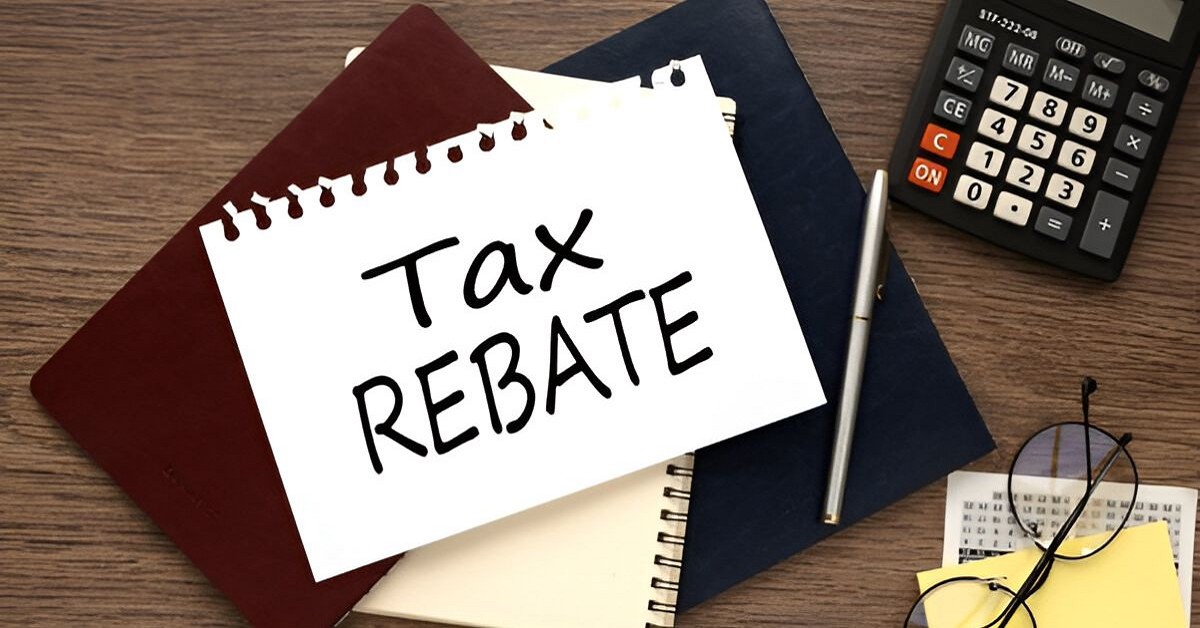Running your own business or working as a freelancer gives you the freedom to choose your projects, set your pace and shape your growth. And when it comes to managing taxes, that freedom extends to how smartly you plan and claim your deductions. With the right approach, the tax system offers several ways to reward your effort and efficiency.
In this blog, we'll explore some practical, clear-cut strategies that can help you make the most of the income tax rebate and benefits available to you.
Structure Your Business the Right Way
The way your business is set up can make a big difference to how much tax you end up paying. A sole proprietorship, a private limited company or a limited liability partnership (LLP) each comes with their own tax rules and benefits. Choosing the right structure early on helps you access more deductions and manage your liabilities better over time.

Get Credit for the GST You Pay
If you're registered under GST, make sure you're claiming the input tax credit wherever applicable. Whether it's equipment, software or services needed to run your business, GST paid on such inputs can often be offset against your tax liabilities, reducing the final outgo.
Use Section 80D for Health-Related Expenses
Medical insurance premiums for yourself, your family or your employees can be claimed under Section 80D. This includes health cover for spouses, children and dependent parents, up to the prescribed limit. It's both a safety net and a smart deduction.
Work-From-Home? That Counts Too
If your home doubles up as your workspace, certain related expenses like rent, electricity, internet and part of your phone bill may qualify as business-related costs. When documented properly, these day-to-day expenses can be claimed as deductions.
Know the Power of Sections 44ADA and 44AD
If you're a freelancer or run a small business with turnover under the specified limits, you might be eligible for simplified presumptive taxation under these sections. Instead of maintaining detailed books, you can declare a fixed percentage of your income as profit and still stay compliant.
Let Your Marketing Spend Work Both Ways
Promotions, digital ads, branding activities-these don't just help grow your business, they're also considered allowable business expenses. Planning your campaigns with an eye on both visibility and tax savings gives your budget double the impact.
Family Members on Payroll? That's Legitimate
Paying salaries to family members actively involved in the business can reduce your taxable income, as long as it's documented and justified. It's a legitimate way to spread earnings within the family and lower overall tax outgo.
Claim Deductions on Loan Repayments Too
If you've taken a loan for a home or an office space and linked your PAN, you may be eligible for deductions under Section 80C on the principal repayment, up to the allowable limit. This helps you build assets while also reducing taxes.
Tap Into Depreciation Benefits
Bought new equipment, tools or machines? These assets lose value over time and that depreciation can be claimed against your income. In some cases-like for manufacturing-additional depreciation is allowed in the year of purchase itself.
Don't Ignore Your TDS Responsibilities
When paying vendors or consultants, ensure you deduct tax at source where required. Missing this step could mean the entire payment gets disallowed as a business expense. Following TDS norms protects your deductions and keeps your records clean.
Donations Can Be More Than Goodwill
Contributing to registered charitable organisations isn't just about giving back-it can also help reduce your tax burden. Donations to certain funds or NGOs qualify for deductions under Section 80G, provided they meet all conditions.
Travel Smart, Save Smarter
Business-related travel-across cities or even internationally-can be claimed as a deduction if it directly supports your operations. This includes transport, lodging and other related expenses when properly documented.
Claim What You Spend on Utilities
Bills for work-related phone usage, parking, fuel and other small day-to-day utilities can add up over time. These, too, are considered valid business expenses and can be deducted if they are essential for operations.
Go Digital Where It Matters
Paying in cash can sometimes lead to scrutiny, especially for larger transactions. Sticking to digital payment modes ensures cleaner records, better compliance and less trouble during audits. It also reflects professionalism in how you manage your books.
R&D Isn't Just for Big Firms
If your business involves innovation-whether you're building a product or improving a service-expenses related to that can be claimed under R&D-related provisions. This includes technology, manpower and tools dedicated to innovation and experimentation.
Final Words
Tax planning isn't just about deductions. It's about understanding how your everyday business decisions affect what you owe. From claiming legitimate expenses to choosing the right structure, small steps can lead to meaningful savings over time.
At the same time, it's important to keep an eye on evolving rules-TCS tax slabs on certain transactions being one of them. If your work involves international transfers or large-value payments, even this can impact your overall tax outgo.
The more informed you are, the more confidently you can build a business that's not only profitable but also tax-efficient.







 CAclubindia
CAclubindia
